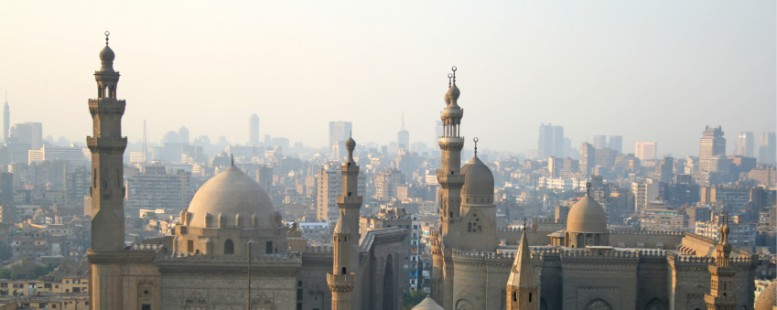Our Opinion: 2016
An Egyptian Anniversary

It is an exciting time to be Cairo. My hotel is on Tahir Square and today is the fifth anniversary of the uprising here against the ousted dictator, Hosni Mubarak. On 25 January 2011, protests against Mubarak and his government erupted in Cairo.
The government appears nervous. In recent months, its leader, Abdel-Fattah al-Sisi, has tried to dispel any danger of a repeat. Protests in 2014 and 2015 led to dozens of deaths and hundreds of arrests. Clerics, labour leaders and television hosts have been enlisted in the effort to keep people off the streets.
Activists claim they have no big plans for protests this year. But the government is rounding up perceived troublemakers, adding to the tens of thousands of political detainees already languishing in Egyptian prisons. Most are accused of associating with outlawed groups, such as the Muslim Brotherhood, or organising protests, which are banned. Journalists and administrators of several Facebook pages have been targeted.
The Tahir Square revolutionaries did overcome, if briefly, the security forces that underpinned Mr Mubarak’s rule. Egyptians then voted for a government headed by the Muslim Brotherhood—a government which, rather than shrinking the state, tried instead to insert party loyalists into its depths. Popular anger against the Islamists then brought Egypt to the soft coup that saw Abdel-Fattah al-Sisi, a general and the minister of defence, installed as president in June 2013.
Two and a half years later, Mr Sisi’s counter-revolution appears all but complete. Mr Mubarak and his inner circle, not to mention the police responsible for killing and maiming hundreds in the clashes of 2011, are out of jail. Tens of thousands of Muslim Brothers, along with hundreds of secular revolutionaries, are imprisoned, in exile, or dead. Nearly 1,000 Islamists were killed when anti-coup protests were crushed in 2013.
Mr Sisi’s men have taken particular care to harass the technically adept young people whose social-media skills made the revolutionary experiment possible. And the state has made an unprecedented effort to control the courts, universities and media.
Many Egyptians praise Mr Sisi for delivering the country from both Islamists and revolutionary hotheads. Many more now shun politics altogether, questioning what the brave 2011 uprising actually achieved.
The Arab Spring was hailed by many as an exciting time for Egypt and neighbouring countries to assert themselves as economic power-houses. However investors are put off by erratic policymaking and the overweening power of the army.
The budget deficit has topped 10% every year since 2011. In mid-2015, Egypt’s combined domestic and foreign liabilities pushed past 100% of GDP. The currency is in decline—and so is tourism. Incidents such as the killing of a group of Mexican tourists mistaken for terrorists by the air force, or the government’s farcical handling of what appears to have been the bombing of a Russian civilian airliner on Egyptian territory in October, show the state to be inept.
Mr Sisi’s benefactors in the Gulf, who have propped up his regime with perhaps $30 billion in cheap loans, central-bank deposits and fuel, are reputedly running out of patience and risk running out of money.
The World Bank has just issued a report lowering its forecast for economic growth in Egypt to just 3.8% in this fiscal year. Just six months ago, it was forecasting 4.5%.
Egyptian clients and entrepreneurs are anxious to ensure, in these volatile times, their assets are protected and recognize the importance of holding funds in a well regulated, secure base, such as London.
